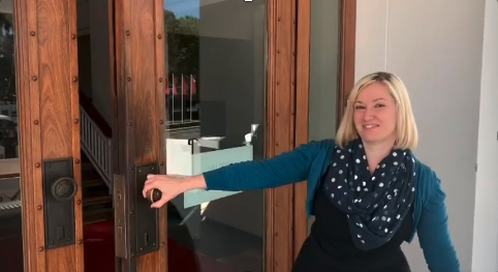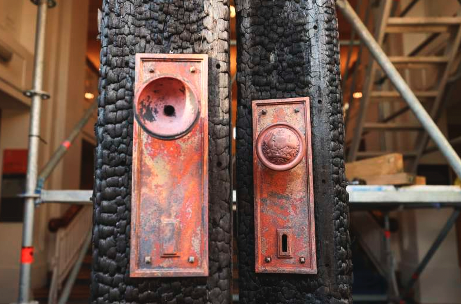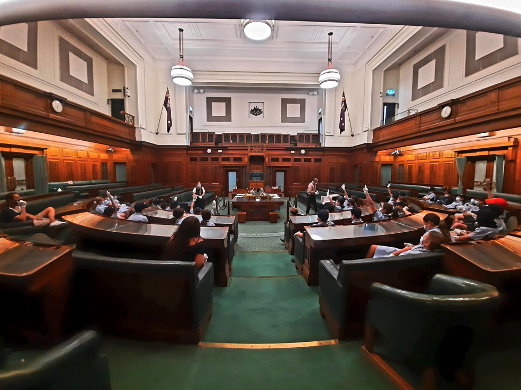|
By Philippa Collin, Michelle Catanzaro, Stewart Jackson, Judith Bessant
Vibrant democracies need ongoing generational renewal . The mass and sustained mobilisation of school students for climate justice reveals that many young Australians want a more participatory and inclusive form of democracy. Since 2019 our team of Australian-based researchers has investigated student motivations, forms of organising and participation in climate activism in order to better understand their expectations of democracy. This research can help inform educators about the civic norms and practices of the new political generation, particularly as they teach contemporary civics. However, on Christmas Eve 2021, our research team learned, via Twitter, that our proposal for Australian Research Council funds to carry this research forward had been ‘Recommended to but not funded by the Minister’. The only justification provided is that the project was either ‘not value for money’ or ‘not in the national interest’. We have written in more detail about this government interference and rejection of our research here. This continuing pattern of Ministerial vetoes (there have been 32 since 2005 by Coalition governments) should concern all Australians because they are censorial, unjust, a blight on academic freedom and limit discovery and innovation. Political interference of this kind damages research integrity, healthy research cultures and our international reputation, collaboration, funding and ultimately our ability to foster a healthy and just society and planet. This was fiercely argued by most of the submissions to the recent Senate Inquiry on a Bill currently before Parliament to remove the veto power. The veto on our research also sends a powerful message to young people that research on their concerns and their political participation is not important. It tells them that it is ‘not in the national interest’ to understand their concerns or how they are seeking to tackle policy problems. It communicates that young people are not important to the renewal of democratic cultures, institutions and processes as citizens now and into the future. Yet research and educational practice show that youth participation in policy-making, service design and civics education is not only desirable, but essential if we are to foster democratic cultures, communities and active citizens who feel recognised and respected. In both civics and climate change education, co-designing the curriculum and syllabuses would significantly address the learning needs of children and young people - those who teach them and create policy that impacts them. At a time when top-down governance and policy responses have become a problematic norm, our aim was to do research with young people in ways that can directly inform the civics curriculum through ensuring young people see themselves - and their civic and political actions - in the content they study. This could also support professional development for politicians and their staff about ‘youthful politics’ and contemporary civic and political practices Our experience is just one case demonstrating why all Australians, and not just academics, need to be free from arbitrary, unjust and politicised interventions by politicians who have forgotten why they are in power: namely to serve the people and uphold due process. Restoring the integrity of Australian universities’ ability to undertake research unfettered by political censorship in all its guises is in the national interest. We need full transparency – and legislation that ends such capricious Ministerial veto. And, in the case of our research, to respect the democratic rights of young people.
0 Comments
This year, Asia Education Foundation at Asialink, The University of Melbourne will host a youth forum designed exclusively for Victorian high school students - The Global Youth Forum.
The Victorian Young Leaders: Global Youth Forum is a new blended learning program for Year 9 students, designed to deepen their understanding of what it means to be a global citizen. As part of this immersive learning experience, students will research and discuss themes of global citizenship, identity, and purpose to propose innovative solutions to achieve positive change for education. With an aim to inspire young Australians to take an active role to reimagine global education for the 21st Century, this forum will provide a platform for students to think about and share their ideas to solve a global challenge that will most affect them in the future and their role in leading the change. Throughout the day, students will engage in a series of online and offline activities and have the opportunity to hear from and interact with expert speakers to build their knowledge and understanding. Identifying key issues, students will collaborate in groups to create a short video of their solution to enhance global education. In a final marketplace, these solutions will be discussed and debated, along with some of the key challenges facing the international education community and the role of youth in addressing them. Students will also be encouraged to make recommendations to the government on how Australia and young Australians specifically, can help implement change.
By: Dr Stephanie Smith, Learning Manager, Museum of Australian Democracy Walking down the corridors of the Museum of Australian Democracy at Old Parliament House always evokes a sense of pride and opportunity. With the 100th birthday of the building’s opening fast approaching, there are so many political and social stories the building has to tell from its time as our provisional parliament. Even upon returning to the building after a period of absence with each breath the smell of warm wooden finishes and leather upholstery are ever present. Working in a building which in itself is an object, a symbol of democracy, our decision-making process and many historic moments is something special. A significant place visited by many young people from across the country as they connect and explore the significant role they have in our democracy. Dr Stephanie Smith opening the front doors to welcome school groups Image: MoAD In the days before the fire, whilst working from home, I would drive the half hour from my house to Old Parliament House just to check the building was ok. I’ve always been incredibly proud of the work I do, and the greater Learning Team does to support teachers and young people. In this moment of concern over the behaviour of protests, I realised this building becomes a part of you. On the day of the fire, I drove past for my regular check in only to witness the many fire trucks occupying the carpark. The billowing smoke and blackened, burnt out entrance was all I could see. As I kept driving past, my heart broke. What had begun as a peaceful protest, a democratic right of all Australians, had ended in a deliberate fire being lit and causing extensive damage. Peaceful protest has long been a method of communicating issues to the those in power alongside voting, petitions, letter writing, wearing badges and t-shirts. All valid, civil means of communicating frustrations with government. Following the event, I shared across social media a video clip of me beaming as I opened the front doors to welcome visitors to Old Parliament House. A moment now so special as I believed the doors had been completely lost to the fire. In the initial clean-up of the portico and entrance a photograph was shared of our Heritage Team hard at work sifting through the debris and there standing strong were the front doors. My heart skipped a beat, they were still there. Worse for wear, a little charred and the outer layer gone but still standing. There was hope. The doors are currently in Sydney with conservation experts being restored. The blackened jarrah and charred bronze of the front doors of Old Parliament House. Image: Alex Ellinghausen Since this time, our purpose as a Learning team has become even clearer. Whilst the building has remained closed to the public since the fire in late December for significant restoration from water and smoke damage, we have remained open to school groups. The Learning team has continued to deliver onsite programs, digital excursions and create online resources. It’s not just about continuing to engage and inquire with students onsite about how they can contribute to creating a better world but extending this to all students across the country. We are working to empower young people to be informed citizens who have a voice and understand the many ways to actively participate in our democracy. The significant work we are doing will help build future generations who look to support those around them, care about community and work to create a better world for all. School groups return to onsite. Image: Timothy Pidkins
|
© Social and Citizenship Education Association of Australia (SCEAA)
Website design by Mitchell Sprague




 RSS Feed
RSS Feed
